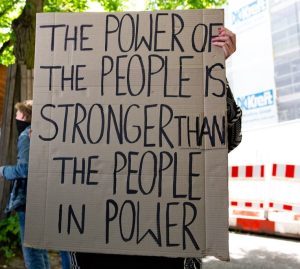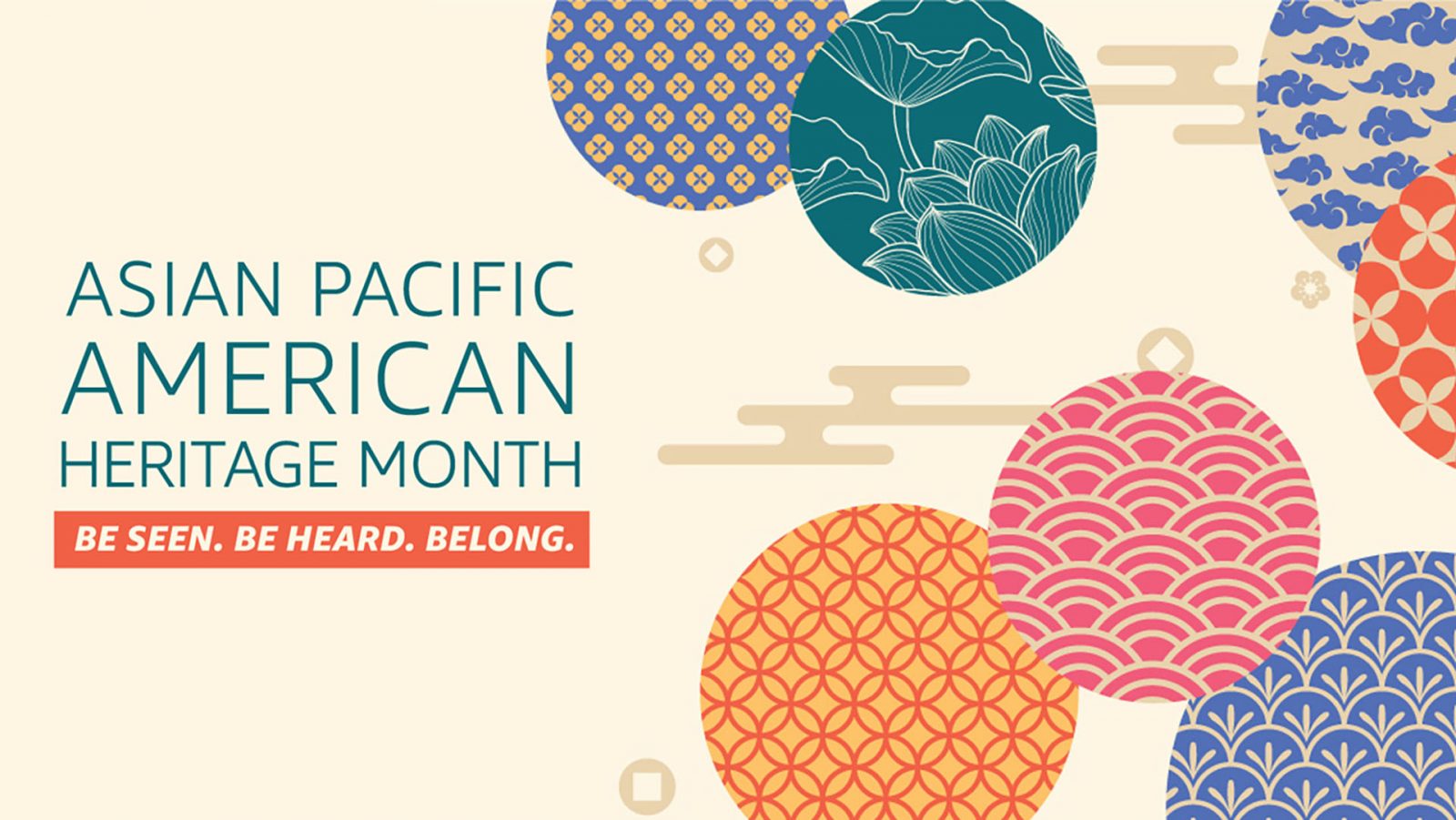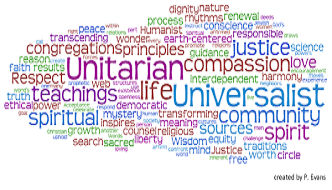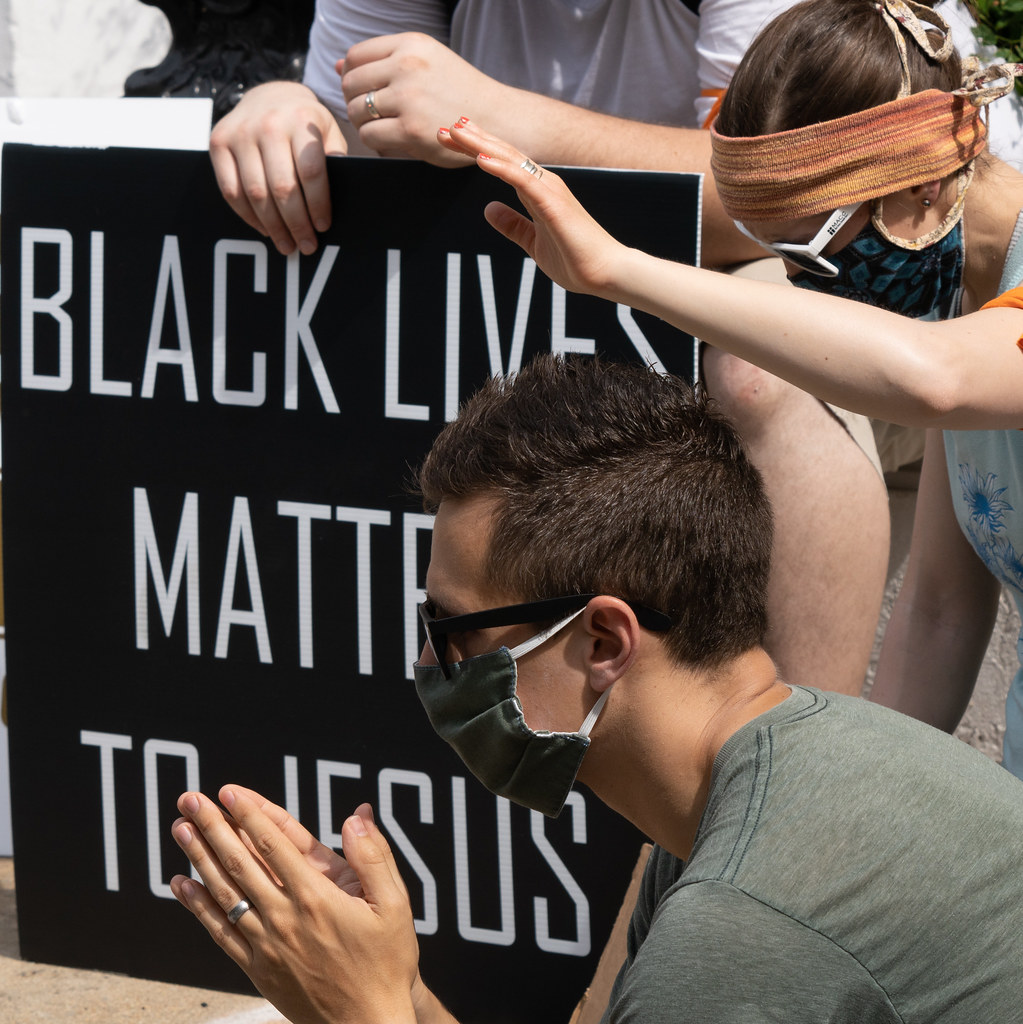Home » Posts tagged 'social justice' (Page 2)
Tag Archives: social justice
Down with CRT?
“George Floyd protest” by vpickering
Critical Race Theory, or CRT, is an academic and legal framework that denotes that systemic racism is part of American society — from education and housing to employment and healthcare. Critical Race Theory recognizes that racism is more than the result of individual bias and prejudice. It is embedded in laws, policies and institutions that uphold and reproduce racial inequalities.
— Legal Defense and Educational Fund, Inc.
Critical Race Theory, or CRT, became the new rallying cry for people on the far right in 2021. A year before, there were rumblings against the highly academic and legal framework. But the rhetoric reached an entirely new level when then-President Donald Trump signed an executive order in 2020 prohibiting federal agencies from conducting diversity, equity and inclusion training. He justified his order by claiming that such training represented reverse racism and were part of the left’s efforts to indoctrinate people into its way of thinking through CRT.[i]
By falsely calling any discussion of racism, white supremacy, inclusion and/or equity CRT, those spreading this false narrative have succeeded in convincing even moderates – and not a few liberals – that the concept is divisive and harmful for children and harmful for American society as a whole.
Causing Harm and Shame
According to Florida Governor Gov. Ron DeSantis, CRT teaches kids to hate each other and is “state-sponsored racism.” Texas Senator Ted Cruz suggests that CRT causes white children to feel shame, shame that some of his fellow conservatives say can cause mental illness in these children. According to Spectrum News, Cruz tells fellow conservatives that they can spot CRT in texts that use the word “equity” frequently.
Armed with this misinformation, thousands of parents have stormed school committee meetings across the United States. The situation became so extreme that Reuter’s news agency commissioned a study on the issue. It reveals that more than half of the 31 school boards contacted said they had added extra security at meetings, limited public comment or held virtual meetings when in-person gatherings became too chaotic. (The 31 school boards contacted were just a microcosm of those actually affected.) In Loudoun County, Va., a letter was sent to one of the adult children of Brenda Sheridan, a school board member. It threatened to kill Sheridan and her child unless she left the board.
Sadly, the disruption has been rewarded. According to a Time.org April 14, 2022, article, 42 states have introduced bills or taken other steps that would restrict teaching CRT or limit how teachers can discuss racism and sexism. Seventeen states have imposed these bans and restrictions either through legislation or other avenues. Some ask parents, teachers and/or administrators to “turn in” teachers or professors who teach CRT or some of its supposed concepts. Voice of America reports that a bill passed in Indiana “permits parents to bring complaints and legal action against schools.”
But is CRT actually causing this harm and shame or is it our country’s inability at best and outright refusal at worst to deal honestly with racism and the long-term results of white supremacy?
I argue that in the hands of people like Cruz and DeSantis, CRT stands for Conservatives’ Revisionist Truthlessness.
Unintentional Truth?
Dr. Greg Ganske, former congressman from Iowa and a vocal CRT critic, seems to contradict his own anti-CRT stance when he argues that CRT has two common themes. According to Ganske, CRT maintains that white supremacy preserves power through the law, and the relationship between law and racial power must be transformed.
But maybe Ganske is simply being honest. As a plastic surgeon and former political operative, he has benefited from the power that white supremacy has brought him, and perhaps he does not want laws to change to level the playing field and provide the dreaded “equity” that those waging war against CRT malign and fear.

CRT foes fear the racial awakening brought about by the murder of George Floyd. For many white Americans, the Floyd video was the first time they saw the effects of the raw racism that has plagued our country for centuries. As they marched through the streets, white Americans and others around the world committed to ending racism and white supremacy, understanding the damage that racism does to them as well. That commitment sparked fear in the hearts and souls of people who believe that the end of white supremacy will siphon off their power.
Personally, as someone who works on issues of class and racial justice, I do not see equity through a zero-sum lens. I do not believe that because you have enough I must go without the things that I need. I think we can both have our needs met – with enough left over for getting not only what we need but some of what we want also.
I do believe, however, that some people, institutions, nations or world regions might take so much that there is little left. That is where CRT comes in and provides a process by which we can make America, and the rest of the world, truly great.
How Does CRT Work?
When Kimberlé Crenshaw, a law professor at UCLA and Columbia, coined the phrase Critical Race Theory in 1989, she saw it as a tool to explain how laws and legislation in the United States are deeply rooted in systemic racism. [ii]
For example, in the early 1700s, shortly after the first Africans were brought to the United States, laws were passed to make it illegal for enslaved people to learn to read and write. Slavery was enshrined in the Constitution in 1787. The Naturalization Act of 1790 denied citizenship to anyone who was not white. The 1800s alone, saw the passing of myriad anti-white legislation, including the Chinese Exclusion Act, Indian Removal Act, Jim Crow laws and many more.
Racist laws continued well into the 1900 and 2000s. One example of this is the game-changing legislation that provided housing loans for WWII GIs. Written into the legislation was language explicitly denying loans to African American veterans. Another example? Alabama did not alter language that prohibited miscegenation until 2000.
Recent anti-CRT laws are just the latest in legislation intended to continue inequity and racism. But instead of causing division, CRT helps us understand that racism is indeed baked into the history of the United States and provides the framework that can help us bring about racial healing together as a community.
The Way Forward
Seeing exactly how laws and societal practices have normalized and institutionalized racism allows us to craft legislation which can undo the harm caused. Just as important, it helps us face the truth as a nation, see the scope of the problem and change practices – and hearts – as well. In the words of Mari Matsuda, a law professor at the University of Hawaii and an early developer of critical race theory, “We have a serious problem that requires big, structural changes; otherwise, we are dooming future generations to catastrophe.”[iii]
Ultimately, CRT will have the opposite effect of the one fear mongers predict. Instead of making white children and people feel bad, it will motivate them to continue to work with BIPOC peers to help the United States to live up to its ideals. We can be the shining beacon for the world that the writers of the Constitution – despite their own shortcomings – envisioned for the generations before them.
And, yes, I am down on the way some people use CRT, when it mean Conservatives’ Revisionist Truthlessness.
[i] Center for Law and social Policy: https://www.clasp.org/blog/how-abolishing-critical-race-theory-preserves-white-power/
[ii] Ibid
[iii] Critical Race Theory: A Brief History, New York Times: https://www.nytimes.com/article/what-is-critical-race-theory.html
Stop the Hate Against AAPI Communities
 Systemic racism and acts of terror towards Asian Americans and Pacific Islanders have dominated media headlines in the past few months. Sadly, while hate incidents against the AAPI community have escalated in the past year, surpassing 6,000 reported incidents between 2020 and 2021, this not a recent occurrence in America.
Systemic racism and acts of terror towards Asian Americans and Pacific Islanders have dominated media headlines in the past few months. Sadly, while hate incidents against the AAPI community have escalated in the past year, surpassing 6,000 reported incidents between 2020 and 2021, this not a recent occurrence in America.
Anti-Asian sentiments, oppression and violence date back centuries.
The United States imported Chinese workers in the 19th Century to build the railroad system. Once it was built, the workers, who had been cheap sources of labor for employers, were seen as competition by many White working class Americans. The anti-Asian sentiments led to Chinese men and their families being driven from towns, lynched and subjected to newly passed anti-immigration laws.
We have witnessed anti-Asian sentiments becoming increasingly hostile during the pandemic, escalating from verbal to physical attacks to most recently, mass murder.
The belief that Asians carry disease and that they should return to Asia no matter how many generations their family has been in America is often shared on social media. Many Americans also confuse the concepts of country and continent and label Asians as a single demographic, all from the same place. This diminishes the rich and varied cultural beliefs, values, religions and spiritual traditions of the Asian diaspora.
Rich Culture(s)
There are many ethnic identities, cultures and languages within this diverse group of people. In the United States alone, this racial category, according to the Census, refers to more than 40 different ethnic groups. Moreover, in the past 40 years, there has been a widening of income inequality among Asian populations, which has led to social and economic consequences for some. Education and income levels vary widely among Asians. Although they rank as the highest earning racial and ethnic group in the United States, the wide and rapid economic divide belies the growing class differences within this group.*
One lingering remnant from the immigration laws restricting Asian migration within the United states is that a large percentage of Asians and Asian Americans still live in states where there were major points of entry for earlier Asian immigrants, such as New York, California and Hawaii.
While Asian migration throughout the United States has been more prevalent since the mid-1960s, when these laws were overturned, there are still places in the United States where Asians are viewed as exotic and foreign, and not “real” Americans. It is not incidental that people of Japanese descent in America, not German, were imprisoned in internment camps during World War II.
Next Steps for UUs?
What does this mean for us as UUs? We at UU Class Conversations believe that remaining true to our Principles will help break down divisions along class and racial lines. Creating an inclusive community for all racial and ethnic groups begins with meaningful and productive dialogue aimed at combatting racial and class injustice.
What do you see then as next steps for this work?
* Pew Research Center, July 12, 2018, “Income Inequality in the U.S. Is Rising Most Rapidly Among Asians.”
Individualism and Universalism
We Are at Our Best in Community
 Unitarian Universalism holds that the individual is the highest authority on their own spiritual health and well-being. No one can tell you what your relationship with the universe should be. We recognize that I cannot fully know and understand what your experiences are or how they have shaped you.
Unitarian Universalism holds that the individual is the highest authority on their own spiritual health and well-being. No one can tell you what your relationship with the universe should be. We recognize that I cannot fully know and understand what your experiences are or how they have shaped you.
But, we must be careful not to fall into the idolatry of the world around us, because the relationship is the thing that we strive for.
Covenantal Faith
Our faith is often called “covenantal.” There is no statement of beliefs that you can recite privately to prove that you are a Unitarian Universalist. You have to make, and keep, a promise to a community.
You have to be a participant in relationships to be fully UU. You have to commit to allowing others to talk to you about your values and ideals and question their place in a responsible life.
You have to accept that you will be encouraged to grow your spirit, even when you are comfortable or growth seems hard. We believe that people are at their best when they are giving their best to the community.
It is easy to fall into the idolization of individuality. We all want to be the hero of our own story, and we want the credit for what we accomplish. But a story is no good without people to listen to it, and no one accomplishes anything in a vacuum. Your community, both in your church and beyond its walls, is at its best when we give everyone the opportunity to be an active participant and give their best back to the community.
Shared Responsibility
To do this, we need to be willing, as a community, to give some support and encouragement to people without them having to earn it on our terms. We need every child to receive a quality education, complete nutrition and adequate shelter. That is how we make them into responsible and compassionate citizens.
We need every person to be guaranteed free time from working to explore the things they love, whether that is painting, music, invention or math. This is how we foster invention and the creation of great art.
We need to address income inequality, as well as the classism behind it, so that those who are struggling can be more fully included in their community, having time and energy to participate. It builds a sense of belonging and shared responsibility.
We need to change how we view the social safety net – not as charity for those who are unable but as support for those who might be able to do more if encouraged and allowed.
We need to put community and a sense of shared responsibility on equal footing with individual achievement and success. Real success should factor in the benefits to the city, the nation and the world. People of every class need to be valued not just for what they have, but how they use it and how much of it they give back.
The United States is in danger of being poisoned by a toxic level of individualism. We’ve lost our civic-minded values, and our infrastructure and education are suffering because of it. We must rekindle the warmth of community if we are ever going to restore the fires of innovation and compassion.
Thomas is the founder and administrator for the I Am UU project. He is passionate about building a better world and a beloved community, and he feels that liberal religion is a vital tool in that construction, and that Unitarian Universalism is the best vehicle for introducing liberal religion to the majority of North America.
Endorsing “A Vision for Black Lives”
UU Class Conversations has endorsed “A Vision for Black Lives,” a carefully crafted policy platform that has been drafted by the Movement for Black Lives. The Movement is a collective of more than 50 organizations representing thousands of Black people from across the country that have come together to articulate a common vision and agenda.
Sharing a Vision
“A Vision for Black Lives” lays out 30+ policy recommendations under six demands. The platform was created in response to the sustained and increasingly visible violence against Black communities in the U.S. and globally.
The Movement for Black Lives Policy Table engaged in a year-long process of convening local and national groups to create the platform. In addition, the coalition solicited feedback from hundreds of people through surveys and national calls as well as from members of coalition organizations.
Shared Policy Priorities
The Movement for Black Live engaged dozens of other organizations, researchers, and individuals for their insights and expertise to begin developing a framework for shared policy priorities. While the platform does not include every policy Black people should be working on, it elevates those for which there was shared energy and action in this political moment.
We encourage you to join UU Class Conversations, and endorse this historic document. And work on the parts of the platform that you and/or your organization most strongly agree with. Read the policies, share them with your community, discuss the points you disagree on, and plan actions around the pieces you support.


